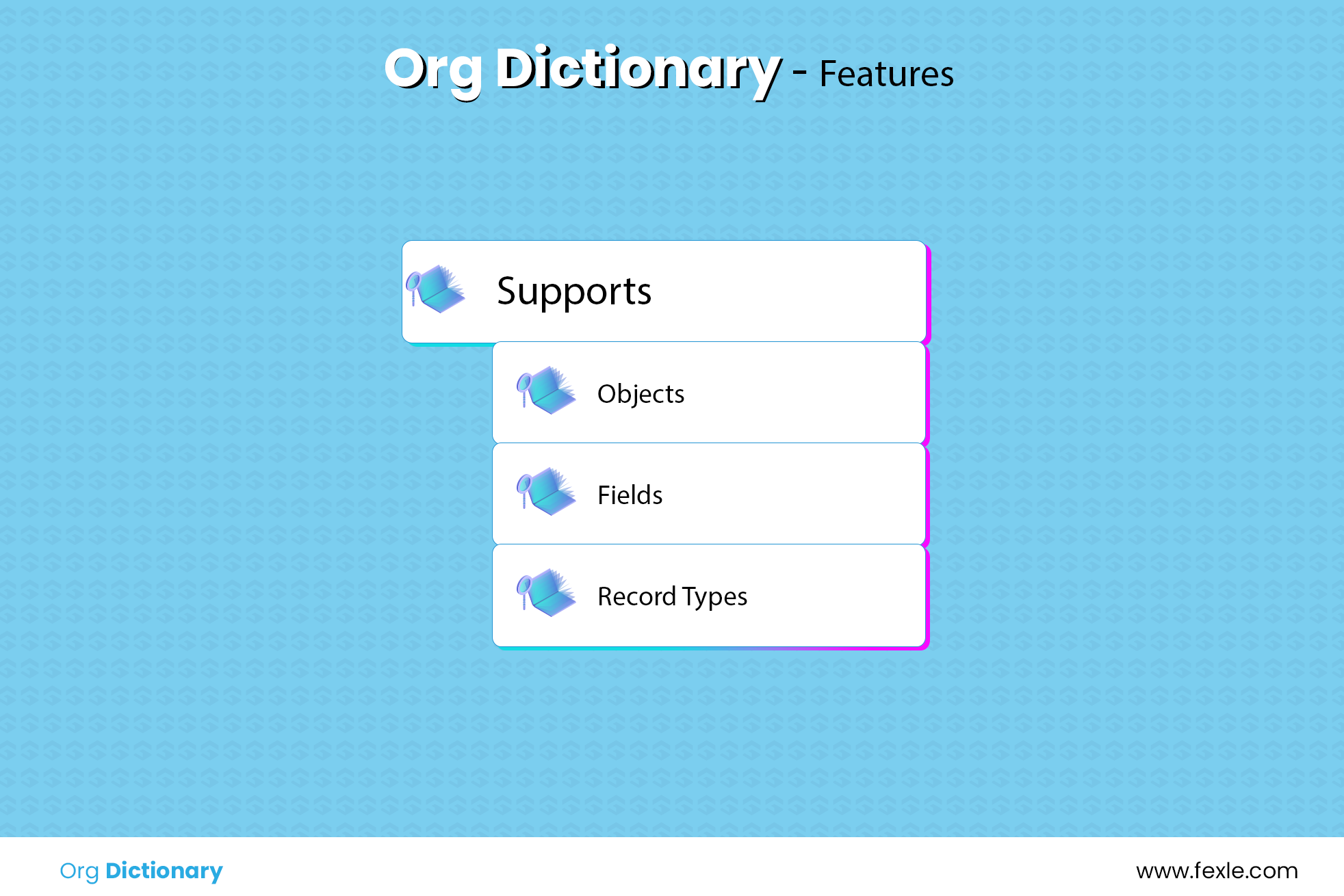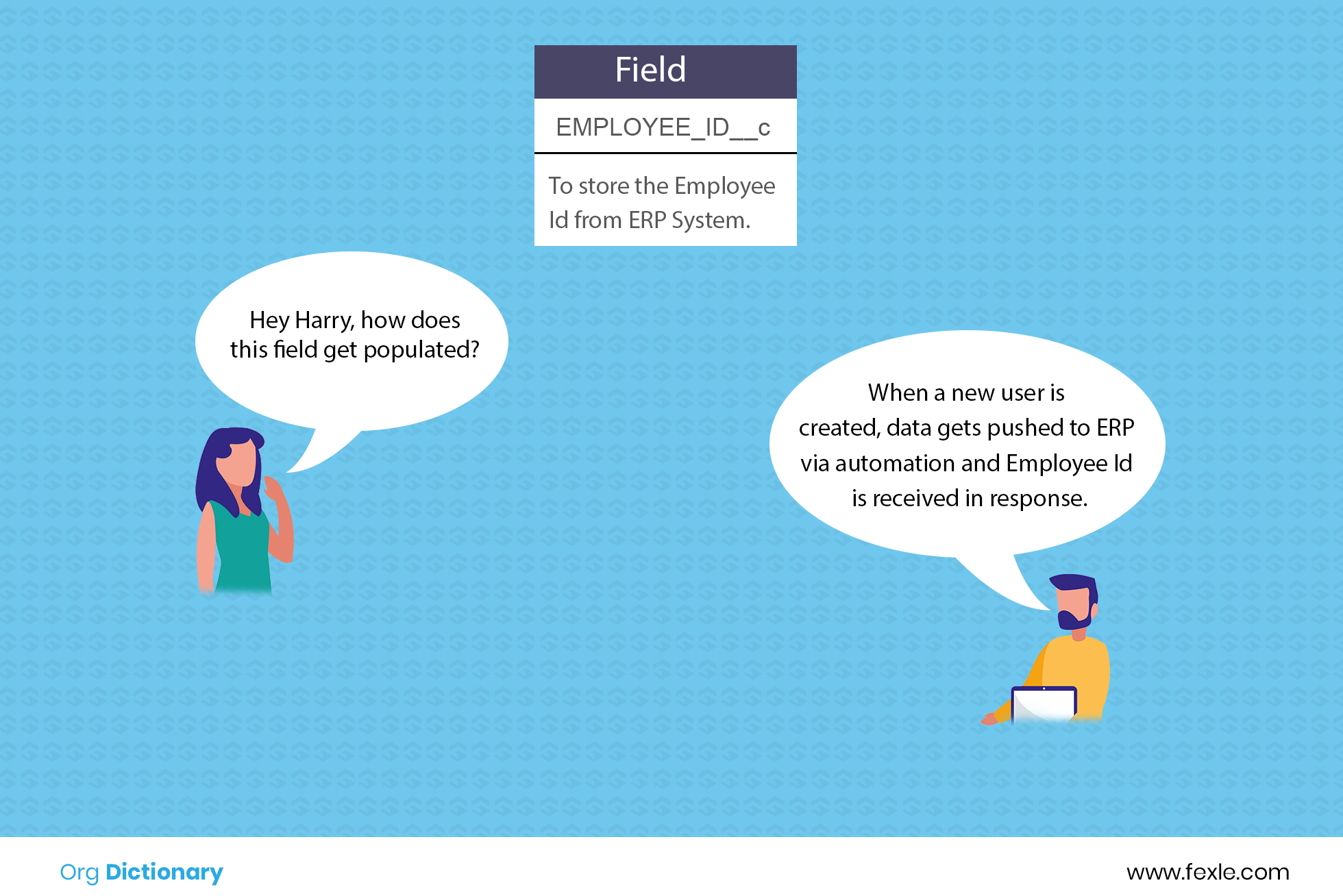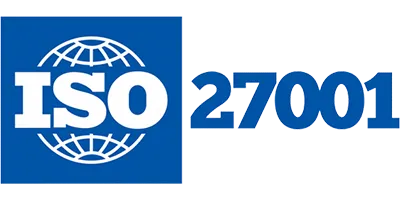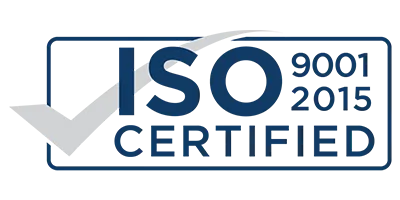In the present era, businesses are rapidly embracing the technological evolutions that are meant to streamline their operations, business records, project details, etc.
FEXLE Services, one of the leading Salesforce consulting companies, has recently launched the first-ever application that is designed to strengthen business operations by allowing users to maintain their own metadata dictionary. The application is called Org Dictionary.
But, before we move ahead and discuss how Org Dictionary application helps users to maintain their data dictionary, let us first understand the major concepts related to a data dictionary and the significance of having a one in an organization.
What is Data Dictionary?
To explain in a simple way, a data dictionary is a reference work of data about data, which is also called metadata. It is a list of key terms that comes with the definitions. A data dictionary is a valuable artefact that is compiled by data analysts for an organization, and can also be called a business glossary. A data dictionary has a profound ability to align business operations and to remove confusion.

With the help of a data dictionary, users get the facility to access information about a database such as what it is about, who is allowed to access it, and where the database is stored in a system, etc.
In short, a data dictionary offers users a way to capture a descriptive list of names, definitions, and attributes of various data elements in a database or in an information system. It enables users to access metadata which is compact with different characteristics such as length of data element, type of data (alphanumeric, numeric, date, symbols, etc.), data frequency, originating source system, entry date and many more.
Why Users Create Data Dictionary?
Businesses work on different projects every year, and there is a high chance for team members who work on different projects, to get confused. It is often seen that most businesses have a single metric, term or a concept that is interpreted differently in a team. Such a situation brings dilemma and confusion among team members.
Due to such confusion, the decision-makers often face disagreements with each other, as each for each one of them the same data has a different meaning thus, it also leads to delay in taking the required action.
You can understand this with this example. Suppose, you have stored data about man’s gender as “M” in one record, “M1” in second record, and “Male” in another record. As you can see, the data is not in a clear format, and in any case, such confusion is not good for businesses.
But with data dictionary on your side, you need not have to worry about such things. All the users and the concerned people in an organization can refer to the data dictionary, and that’s how every decision-maker comes on the same page.
Data Dictionary, Its’ Components and Role of Org Dictionary
Now that we have understood what a data dictionary is, and how it proves helpful for businesses? It’s the time we should ponder on the major component of a data dictionary.
Let us explore the examples of what might be contained in a data dictionary of an organization.
- The names of fields
- The table in which field exists
- The data types, like integer, character, etc.
- The size of the fields
- Meaning & explanation of database field
- The relationship between field
- Details of the one who has access the fields, and many more.

Org Dictionary, a lexicon for metadata, not only helps you with the above-stated factors but also help you to enhance the functionalities of your standard data dictionary.
Let us move ahead and understand how Org Dictionary streamlines objects, metadata, fields, etc. in an information system of an organization.
The Org Dictionary application is designed and developed profound Salesforce professionals of FEXLE services with an aim to simplify all your project related queries.
This dictionary app gives users the options to create a custom project-based vocabulary, with custom metadata, fields, etc. With the use of Org Dictionary, your entire organization can get all the information about the specific component such as why that component was created, how to utilize that component, etc. E.g., suppose a field is created in your data dictionary, with the help of Org Dictionary application you can learn, what is the meaning of the field, why that field was created, etc. and you can even have discussions with experts on the created field at any point in time.
Objects, Fields and Org Dictionary
Org Dictionary has simplified the process of creating custom metadata dictionary, which will let you know about fields, record types, custom objects, etc.

This app will give a complete list of all the standard and custom objects in a data dictionary, and you can easily manage your objects and related metadata without any hassle. All the standard and custom objects are shown in the left panel of the Org Dictionary.
Users can click on any listed object, and explore all its metadata information, which will appear in the left panel of the screen.
Org Dictionary not only helps you expand your Salesforce schema vocabulary, but also let you learn the meanings of new objects, their metadata, and many other components.
This application also helps users to effectively work together, conduct discussion, and share idea and information with each other, without any confusion. Users of this app can quickly browse and explore all the information of required object metadata, and search details such as who has created that object what is the purpose of the object, and many other attributes.
Wrapping Up
In this blog post, we have discussed on a data dictionary, the importance of data dictionary in business, and the ways through which Org Dictionary enhance the functionalities of a data dictionary. In our next post, we will discuss some other feature of the Org Dictionary and tell you, why you should have this application in your organization.







